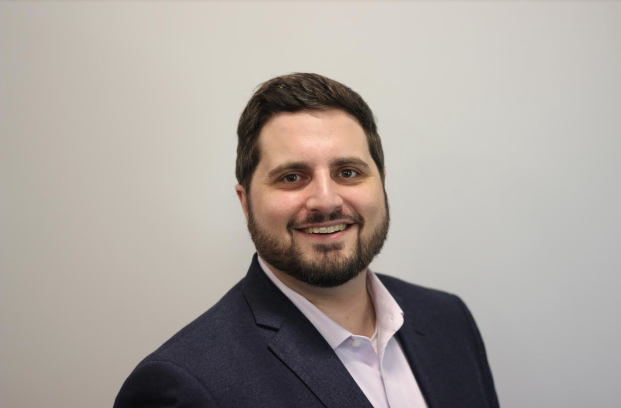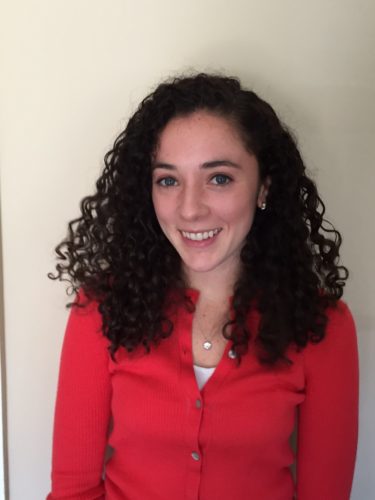Name: Josh Ryor
Class Year: 2010
Title: Assistant Secretary of Energy
Organization Name: Massachusetts Executive Office of Energy and Environmental Affairs
1. In one sentence, what does your job entail?
I develop and execute strategic energy policy initiatives for the Commonwealth of Massachusetts, with a focus on EV charging infrastructure and clean energy deployment, and provide guidance and support on energy policy and utility regulation matters to officials in the Healey-Driscoll Administration, including Governor’s Office officials and the leadership of the Commonwealth’s energy policy and utility regulation organizations.
2. What planned and unplanned events connected you to your industry and your first employer after Holy Cross? How did you learn/decide it was a good fit for you?
This is a bit of a story. My first job out of Holy Cross was as a high school physics teacher at the Academy of the Holy Angels in Demarest, New Jersey. Frankly, I didn’t have a plan for what to do after college. I just knew that I wanted to do something where I’d have a positive impact. I considered applying for the GE finance leadership program for a bit or applying for other positions in finance but it just didn’t feel like the right fit for me, plus I hadn’t done any finance internships while at Holy Cross.
Second semester of my senior year two things happened. First, I started telling people that I was interested in getting into teaching, at least while I figured something else out. I’m not exactly sure who I was telling or why, but apparently that’s what I was doing because it seemed like every science major knew that that was my plan. I had been a physics tutor at Holy Cross for a couple of years and I enjoyed helping people succeed in their classes and to understand a subject I loved. One Friday evening at a party, a friend, Meg Emmich, asked if I was still looking for a teaching job. I said that I was and she connected me with the folks at Holy Angels the next week. The rest, as they say, is history.
Second, I took Energy Economics taught by Professor Matheson. I knew about halfway through the course that this was what I had been looking for: something that took the math and problem solving skills I had been learning in my physics and economics courses and applied it to tangible problems and projects. Since it was so late in the year when I realized I wanted to pursue energy issues more, I decided to give teaching a shot for a couple of years and to keep my interest in energy in the back of my mind. In my second year of teaching, I started looking at graduate programs in clean energy and energy policy. In 2011/2012 there were surprisingly few programs with a technical focus (now there are well-established programs at Yale, Michigan, Duke, MIT, etc.), so I decided to go the University of Edinburgh in Scotland, which had a program in Sustainable Energy Systems out of their School of Engineering that also had energy economics and policy courses as part of it’s curriculum. Ultimately, I took an unpaid internship in D.C. after grad school with the American Council on Renewable Energy focused on federal energy policy. After that, the policy stuff stuck.
3. What were you involved in when you were on campus?
I was an extended Fall Orientation leader, I volunteered at an orphanage and tutored at a school in Worcester through SPUD, I participated in a weekly student religious and support group (I forget the name), I participated in two Spring Break service trips, I was part of the Physics National Honor society, I was an physics tutoring, and I participated in basketball and soccer intramural. There may have been more, but that’s all I can remember now.
4. What was your major and how did it affect your career decisions?
I was a Physics and Economics double major. The analytical and problem solving skills I developed in these disciplines led me to clean energy and climate policy. As I said above, I wanted to do something that had a positive impact. Physics and Economics also helped me further develop my love for solving complex problems and honed the skills needed to solve all types of complex problems, not just the problems put before me in the specific courses that I took. Once energy and climate issues were presented as a set of problems to solve in Professor Matheson’s course, it was obvious that this was how I could use the skills I had learned in my majors to have an impact in the world. Certainly, I can’t think of a more urgent, complex, and timely problem than climate change.
5. What are one or two skills that you developed at Holy Cross that you use in your work?
I’ve already mentioned problem solving in general, but I’d also add, and really can’t stress enough, that the liberal arts education Holy Cross provided has been instrumental in my success in the energy policy space. Energy policy requires a fundamental understanding of the physics, engineering, economics, finance, legal, and political aspects of various interrelated social, political, bureaucratic, and physical systems. Very rarely am I the expert on a given subject in the room; in fact, I am most frequently more like a student who is peppering others with questions to understand and dissect the key issues of a subject. Holy Cross is where I learned how to ask the right questions.
Also, I simply wouldn’t be in my current role if I didn’t have to take courses outside of my majors like a traditional college experience. I came into Holy Cross a lazy, unorganized writer with little patience for or skill in the finer points of writing (or really any of the points). Holy Cross helped me understand the importance of both clear and persuasive writing. While I didn’t hone my craft until much later, I simply wouldn’t have been able to succeed in graduate school or after without the foundation Holy Cross gave me.
6. What advice do you have for students on campus today?
I have three general pieces of advice:
1) Listen to this: https://www.youtube.com/watch?v=sTJ7AzBIJoI;
2) Work on understanding who you are, what you value, and being comfortable and confident in the answers to those questions. The rest tends to figure itself out when you’re honest and comfortable with yourself, but it’s not a perfect system and the process is never finished; and,
3) Be careful with advice. It’s just what worked (to varying degrees) for the person giving the advice. I appreciate the irony here.
In terms of advice for a career in energy policy, an ability and/or willingness to learn new things in different disciplines and a passion for addressing climate change will go a long way.






